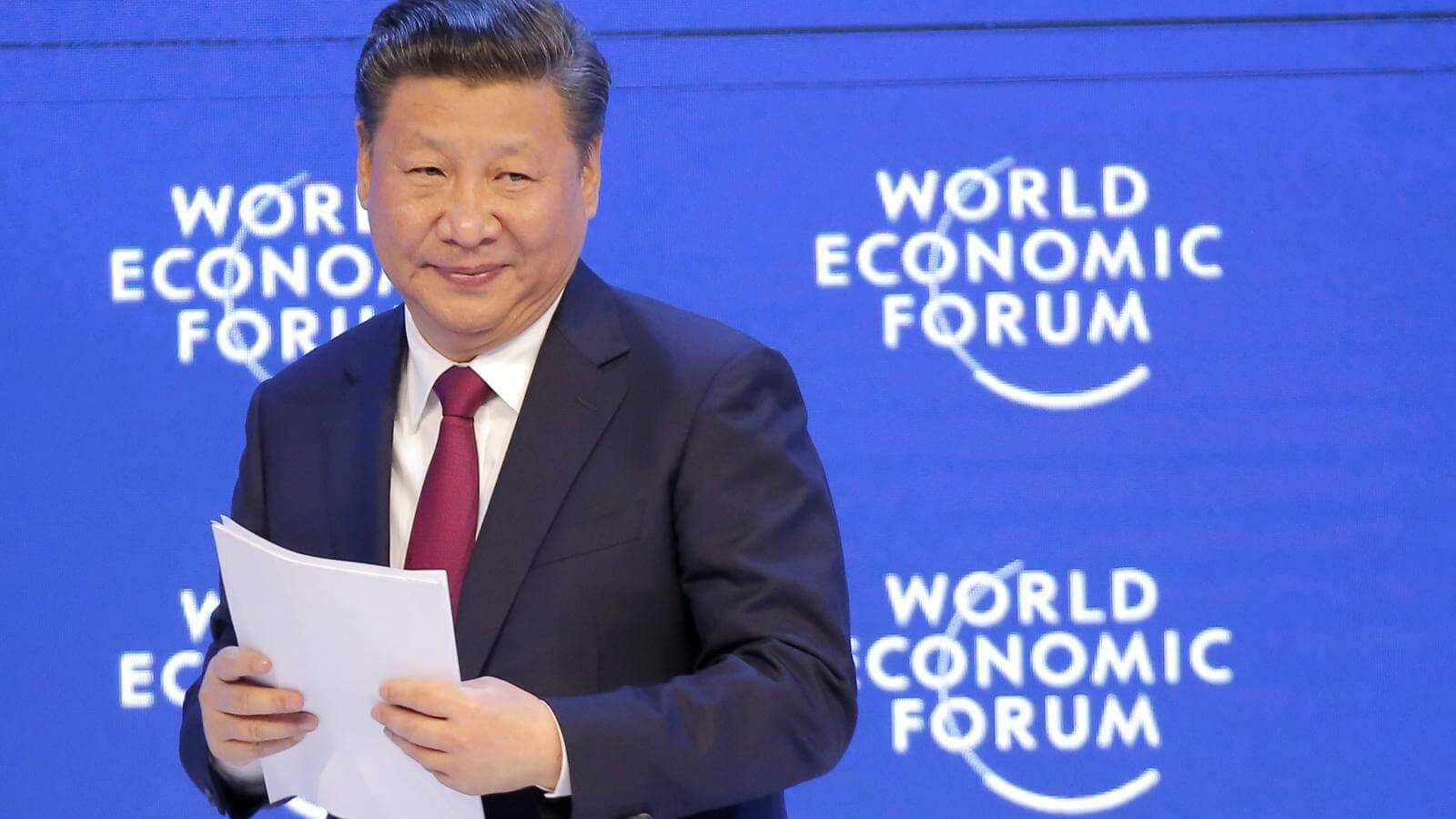In a speech to world leaders at an all-virtual 2022 Davos World Economic Forum on Monday, Chinese President Xi Jinping warned world powers of the perils of promoting the “Cold War mentality.”
Echoing his speech at the same event last year, Xi said: “Acts of containment, suppression or confrontation arising thereof do all harm, not the least good, to world peace and security.” Instead, he called on the international community to “choose dialogue over confrontation, inclusiveness over exclusion, and stand against all forms of unilateralism, protectionism, hegemony or power politics.”
In a thinly veiled reference to the United States (US), Xi said that “even worse are the practices of hegemony and bullying [...] Naturally, countries have divergences and disagreements between them. Yet a zero-sum approach that enlarges one’s own gain at the expense of others will not help.”
In the past, China has often accused the US of attempting to create a “new Cold War” and both powers have engaged in constant rhetorical overtures that have further escalated tensions between the two. Chinese Foreign Minister Wang Yi has previously stated that such attempts would harm the interests of both nations and stressed that “anyone who tries to start a so-called “new Cold War” in the 21st century will be on the wrong side of history.” Cracks in US-China relations continue to deepen, with both sides at loggerheads over China’s aggressions in Taiwan, Hong Kong, Xinjiang, and the Indo-Pacific, as well as their longstanding trade war.
Read President Xi Jinping's message to The Davos Agenda in full https://t.co/zxDvpfE6iS #china #presidentxi #DavosAgenda pic.twitter.com/6S7qzaU9J4
— World Economic Forum (@wef) January 17, 2022
Xi further warned that acts of “enthusiastically putting together exclusive small circles or blocs that polarise the world, overstretching the concept of national security to hold back economic and technological advances of other countries, and fanning ideological antagonism and politicising or weaponising economic, scientific, and technological issues, will gravely undercut international efforts to tackle common challenges.”
The comment was possibly a reference to the US’ recent crackdown on Chinese academicians in the country under the guise of espionage and trade secrets theft. In December, Harvard professor Charles Lieber was found guilty of lying to US authorities about his ties to the Chinese government.
Chinese Foreign Ministry spokesperson Zhao Lijian had responded to the conviction by saying that the US was repressing scientists and visionaries and damaging bilateral scientific and technological exchange “in the name of combating economic espionage.” According to The New York Times, the practice “has slowed research and contributed to a flow of talent out of the US.”
Xi concluded his speech by calling on “different countries and civilizations” to “respect each other and seek common ground and win-win outcomes by setting aside differences.”

